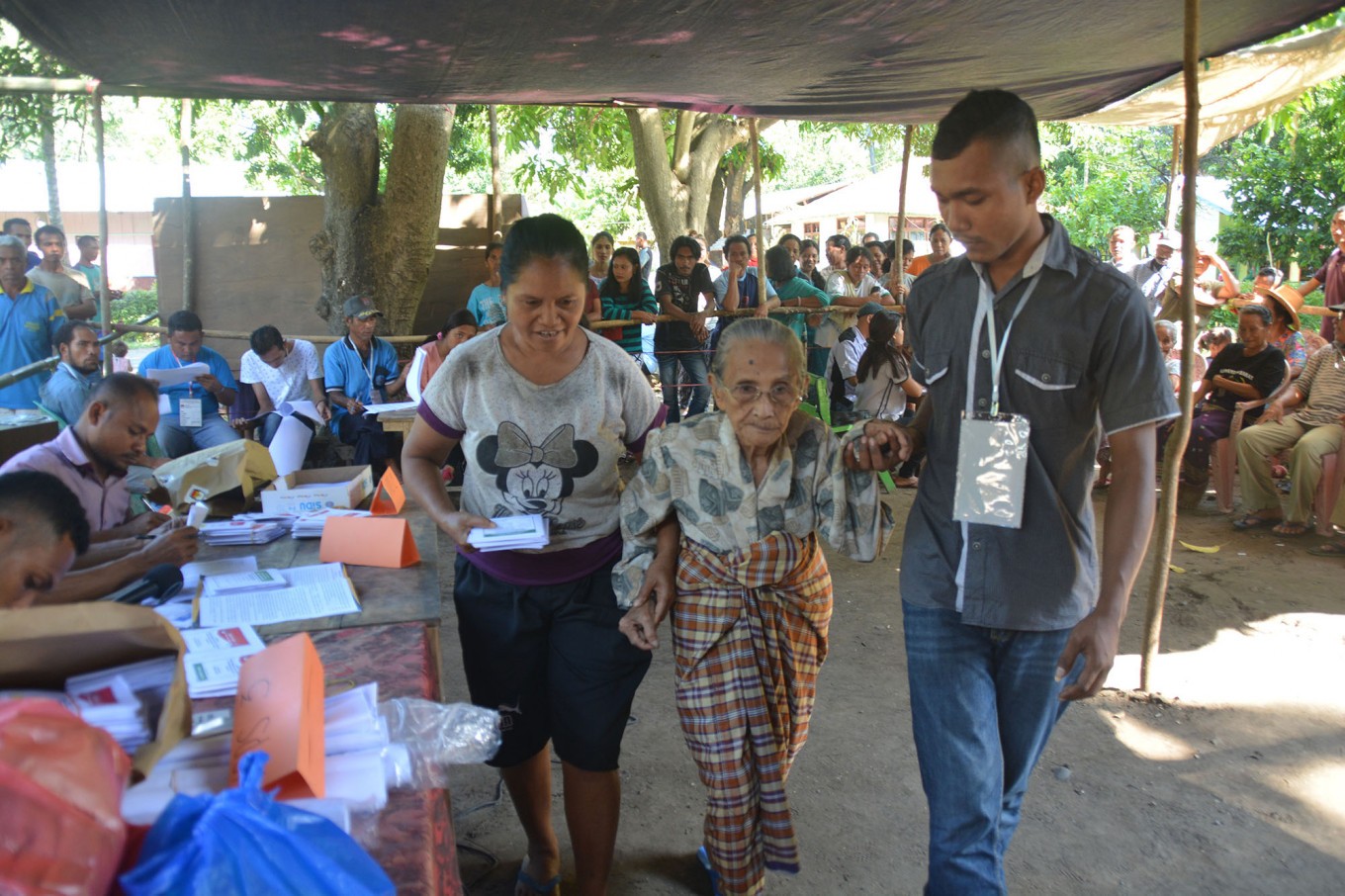
Regional elections in December may escalate COVID-19 transmission: Public health experts
by Ghina GhaliyaPublic health concerns are mounting over the government’s plan to go through with holding the 2020 simultaneous regional elections in December over fears of further virus transmission amid the ongoing COVID-19 pandemic.
Health experts have warned that holding the elections in December could raise the transmission of the novel coronavirus disease, given the fact that the preliminary stages of the elections will start in June. The stages up to the actual voting will involve assembling many people including election officials, the candidates’ campaign team members and voters.
Home Affairs Minister Tito Karnavian has announced that voting in the concurrent regional elections will take place on Dec. 9, after pushing it back from the initial schedule of September.
Experts have dismissed Tito’s claim that holding elections in December could be an opportunity to help contain the virus, as incumbent candidates would be more motivated to do their best to control the virus transmission if elections were looming.
Nurul Nadia, a public health specialist from the Center for Indonesian Strategic Development Initiatives (CISDI) suggested that a further delay to 2021 was necessary, arguing this would give time for members of the public to directly interact with the candidates in their respective regions.
"The risk of virus transmission will actually increase [...] Candidates or their campaign teams will still go into communities to campaign," she told The Jakarta Post on Thursday.
Nadia explained that a further postponement was essential as many regions still lacked testing kits and health logistics.
"If we delay it to 2021 the regional administrations will have more time to pursue efforts in reducing COVID-19 transmission rates in their respective areas. They should ease the transmission by testing people,” she added.
Pandu Riono, an epidemiologist at the University of Indonesia echoed the sentiment while also questioning the Health Ministry and the National COVID-19 task force risk analysis in supporting the plan.
Health Minister Terawan Agus Putranto initially suggested that polling day should be held after the World Health Organization (WHO) declared the end of the pandemic. However, the minister, as well as the national COVID-19 task force chief Doni Monardo, later agreed to the December timetable.
In a letter from Doni to the General Elections Commission (KPU) on Wednesday, a copy of which was obtained by the Post, he instructed the commission to continue election preparations while implementing health protocols to prevent further spread.
Pandu argued that forcing the plan would only endanger the public and threaten election officials' health, pointing out that over 800 election officials across the country died during the 2019 general elections as a result of poor health and exhaustion.
"The minister and the task force chief are responsible if people fall sick and die. Can we sue them if that happens? Will they be responsible for it?"
“The plan is very unrealistic. It may fail and is very costly,” he said.
Pandu suggested the government consider staggering the elections instead, starting with those areas that are considered safe based on public health indicators.
"Maybe the areas that have relaxed their large-scale social restrictions [PSBB] in stages three or five should be the first so that we have an indicator, because everything is uncertain now,” he said.
The Association for Elections and Democracy (Perludem) stated that the forced implementation of simultaneous regional elections amid a pandemic could potentially cause more harm than benefits.
The organization in conjunction with other elections observers have initiated a petition on Change.org that had been signed by more than 1,600 people as of Thursday, demanding a further delay.
They cited concerns, such as the risk of virus transmission, the politicization of social aid, the lack of a level playing field for incumbent and non-incumbent candidates, as well as a decline in voter participation.
“If the regional elections are slated to take place in December, it means the preparations will start in June when the number of COVID-19 cases will still be very high,” Titi Anggraini of Perludem said.
“This will lead to changes in the preparation process, with extra health protocols that will cause an increase in the budget and adjustments to the regional elections stages.”
KPU chairman Arief Budiman predicted an increase in the elections budget of Rp 535.95 billion (US$36.3 million) as it would have to provide larger spaces for voters, extra ballot boxes, masks, disinfectant and hand sanitizer.
“Given the current national emergency, I hope that the extra budget for the regional elections can be provided so that we can proceed with the stages,” he said.
If you want to help in the fight against COVID-19, we have compiled an up-to-date list of community initiatives designed to aid medical workers and low-income people in this article. Link: [UPDATED] Anti-COVID-19 initiatives: Helping Indonesia fight the outbreak